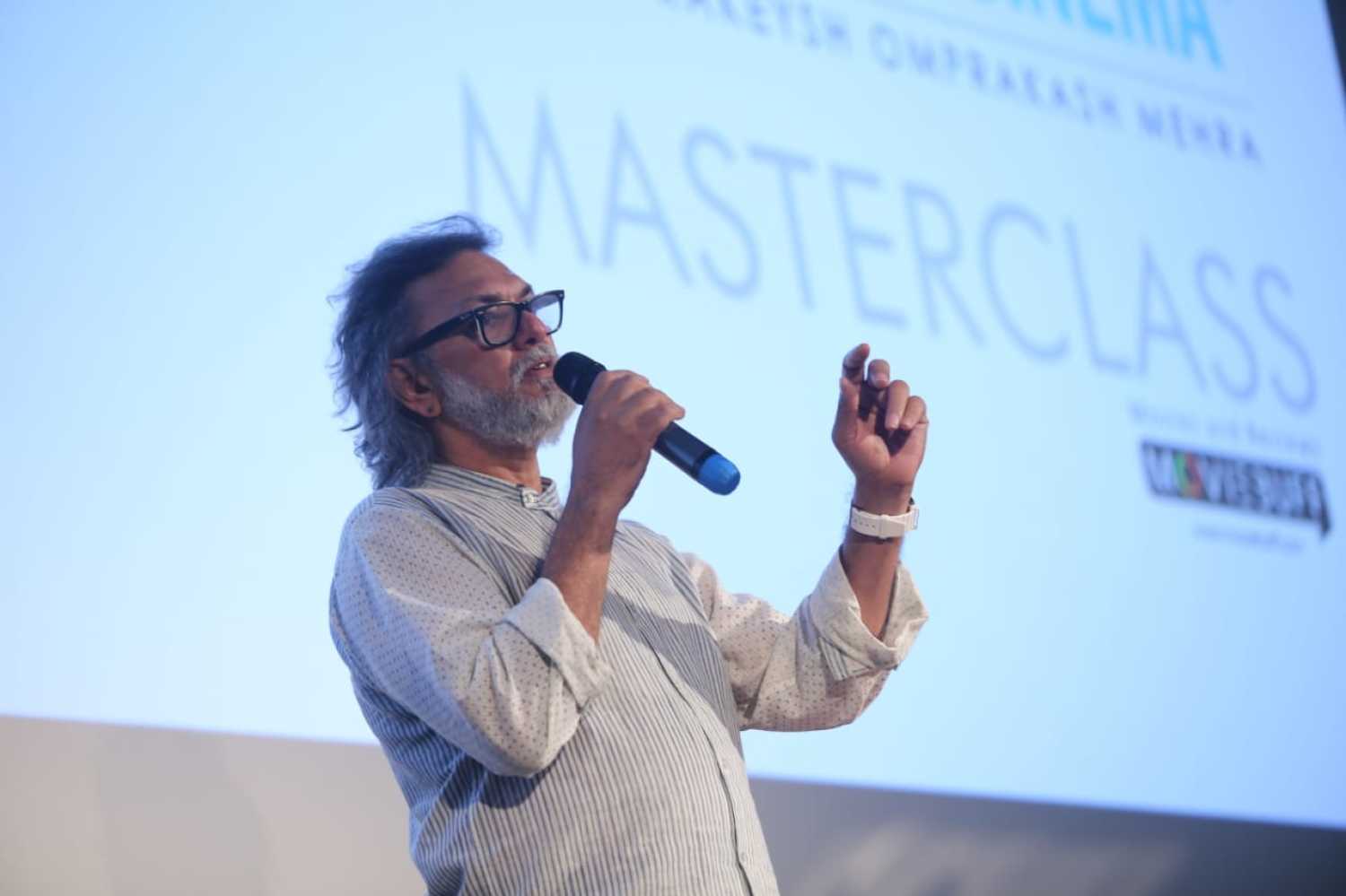Speaking at the 49th International Film Festival of India, the Mirzya (2016) director said he would rather be known for his failures than his successes.
Editing made me realise I don't have to be linear: Rakeysh Omprakash Mehra
Panaji - 29 Nov 2018 10:00 IST


Blessy Chettiar
Director Rakeysh Omprakash Mehra is known for the polished nature of his films. From Rang De Basanti (2006) to Bhaag Milkha Bhaag (2013), he has cleverly weaved stories running parallel in the present and past. Mehra has now said that he feels editing has liberated him as he can now tell his stories in a non-linear fashion.
Revisiting Milkha Singh's inspirational biopic – 5 years of Bhaag Milkha Bhaag
“Personally, editing has liberated me a lot in telling my stories. I have realised that I don’t have to be linear anymore, like I’m not linear in real life. I could be travelling in a bus or in a car, going from point A to point B. But in my mind I could be in my childhood or thinking about someone sick in my family, or a lost friend. That is what editing has given me, that I can go anywhere,” Mehra said.
Bhaag Milkha Bhaag (2013), the biopic on athlete Milkha Singh, was screened as part of the Khelo India campaign at the 49 International Film Festival of India (IFFI), held in Goa from 20-28 November. Other films screened as part of the campaign were Reema Kagti's Gold (2018), Omung Kumar's Mary Kom (2014), Abrid Shine's 1983 (2014), Neeraj Pandey's MS Dhoni: The Untold Story (2016) and Soorma (2018).
Scoring gold: How sports films became popular in India
Mehra further added that the art of editing is still evolving and he is still learning. “I think a few more failures and I’ll start getting it right. But it’s a wonderful art form in cinema to stay non-linear but yet make your story more effective,” he said.
Speaking at a masterclass titled ‘Nuances of Inspirational Cinema' during IFFI on 27 November, Mehra elaborated on why editing is unique to cinema. “There was no editing ever in the history of mankind. Unlike in real life, in cinema I can open one door and exit through another. That’s where the editor comes in. It’s a unique art because of and only by cinema.
“It’s not that I’m in love with editing, I’m very nervous. I never enter the edit room. I leave it to the editor. Because then you tend to become very close to your material. There has to be an immense sense of trusting people you are working with, otherwise don’t work with them. Do everything yourself,” he added.
Mehra has also directed Delhi-6 (2009) and Mirzya (2016), which did not do too well at the box office. However, he said that he would like to be known for his failures rather than the successes.
“I seriously feel that in any art form, you have to give yourself permission to fail. Every time I start a film, I say this is going to be a big flop. Once I cross that bridge, I feel lighter, fearless. I think it’s very important that you don’t make movies with a monkey as a burden on your shoulders. Otherwise, it will show in your work. Expression through writing, painting, cinema, teaching, cooking, is what we internally are. Whenever I have cheated myself and my thinking, it has come out on screen.”
Related topics
IFFI

